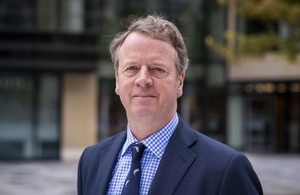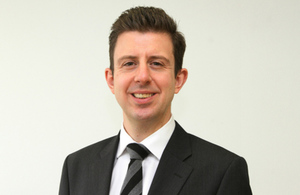Dame Colette Bowe reappointed to the Financial Policy Committee
News story
Dame Colette Bowe has been reappointed as an external member of the Financial Policy Committee, the Chancellor of the Exchequer, Rishi Sunak has announced.

Dame Colette’s first term as an external member of the Financial Policy Committee ends on 31 August 2022. Her second 3-year term will end on 31 August 2025.
Currently a trustee of the Nuffield Foundation and the IFRS Foundation, Dame Colette is also a member of the Steering Group of the Qatar Centre for Global Banking and Finance at King’s College London. She was previously the Chairman of the Banking Standards Board (2014-2019), Ofcom (2009-14) and a board member of the UK Statistics Authority (2010-2018) and the Department for Transport (2014- 2017).
She has held multiple senior board roles across commercial and public sector institutions, including board memberships at Morgan Stanley Bank International (2005-2011), Axa Investment Managers (2012-2014) and was Chairman of Electra Private Equity (2010-2014) – among other positions. Dame Colette’s expertise extends across a wide range of areas including investment management, banking, private equity, and regulation.
She holds a PhD in economics from Queen Mary University of London and served as chairman of Queen Mary’s governing body from 2004-2009.
She is also currently a Trustee of the RC Diocese of Westminster and a governor of Highbury Grove School.
About the Financial Policy Committee (FPC)
- The FPC is the UK’s macroprudential regulator: its objective is to protect and enhance the stability of the UK’s financial system by identifying, monitoring and addressing systemic risks.
- The FPC has thirteen members. Six of them are Bank of England staff: the Governor, four Deputy Governors and the Executive Director for Financial Stability Strategy and Risk.
- There are also five external members who are selected from outside the Bank for their experience and expertise in financial services.
- The Committee also includes the Chief Executive of the Financial Conduct Authority and one non-voting member from HM Treasury.
Published 14 December 2021

